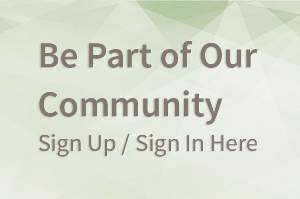BK Blog Post
Five Ways an Introvert Can Participate in a Political Debate
 Posted by
Jeevan Sivasubramaniam,
Vice President, Editorial,
Berrett-Koehler Publishers Inc.
Posted by
Jeevan Sivasubramaniam,
Vice President, Editorial,
Berrett-Koehler Publishers Inc.
Jennifer Kahnweiler has written three books about introverts and how they relate and work in an extroverted world. These days, everyone is talking politics, but introverts have a special challenge getting themselves heard in an environment where those who speak the loudest often get heard.
Introverts have an advantage over extroverts in discussing hot topics. They bring strengths like listening, calm observation, and delving deeply to truly understand a topic or person. Here are 5 specific ways introverts can participate in a productive political discussion while maintaining their cool:
1) Listen WIthout Defending. You most likely are a great listener already and demonstrate this by nodding, paraphrasing what you hear, and asking great questions. Your conversational partners will not feel defensive if they know they can express themselves freely. You will preserve the relationship and continue to be perceived as a calm, reasoned person who shows respect. The key is to check yourself on your judgments as you listen. Just be curious about where your strong emotion is coming from and set that aside while you try and understand the other person. An introverted colleague listened to her teammate argue against gun control and though she vehemently disagreed with his position, she didn’t cut him off. They still have many areas of disagreement but their dialogue continues.
2. Get Your Voice in the Room. Don’t hold back your ideas. Your voice matters. So get comfortable with stating your opinion by first writing down your ideas before speaking them. Consider keeping a journal or use your mobile device to record your private beliefs. When it comes time to share them you will have given them deep thought, something you are comfortable with doing as an introvert.
3. Take Quiet Time. The onslaught of negative news can create stress for introverts, and the overstimulation can be difficult. Be sure to build in breaks from news, social media and political conversations. Be careful not to overreach and make your breaks morph into isolation. This can lead you to spend too much time brooding about events in your head and having conversations with yourself.
4. Do Your Research. Use your introverted strength of careful preparation and analysis to come prepared to political discussions with facts and examples. Some of the most persuasive influencing techniques involve personal stories. So spend some time learning about how issues are impacting people at a personal level and share those. Use social media thoughtfully by scanning sites for relevant articles. Be sure to read and listen to different points of view so that you are not locked into one fixed position.
5. Don’t Forget to Laugh. Humor is a connecting tool. When you can loosen up with those you disagree with you don’t have to make politics the center of your discussions. As we work together and can get to connect as human beings who share interests we can accept each other and not be so intent on changing each other. I call it “Accepting the Alien.”






